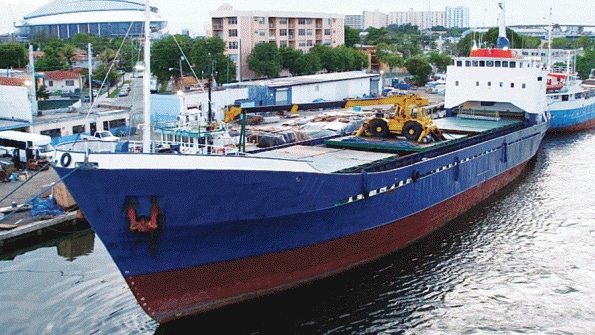
How’s this recipe sound: First, take a bag of dirt from the mountains that costs $5 for 50 lbs. and is supposed to have mineral/nutrient qualities. Then add some butter (if you have) it, some sugar (if you have it), a bit of salt, and water. Stir, until it forms a soupy gray “batter,” then mold into concave patties and spread in the sun to dry (hoping all the while that a sudden rainstorm doesn’t come along and ruin them).
When dry, collect and feed to your children.
That, however yucky it may sound, is what takes place daily in Haiti, the poorest country in the western hemisphere — its poverty and squalor made all the more severe by a devastating earthquake in 2010 that killed 316,000, injured another 300,000, and left 1.5 million homeless or displaced, and the more recent destruction of Hurricane Matthew, just a month ago, that killed hundreds and left more than 1.4 million in desperate need of food.
Hurricane Matthew, just a month ago, that killed hundreds and left more than 1.4 million in desperate need of food.—Getty Images/Spencer Platt
The storm also wiped out must of the nation’s food crops — in some areas, a total loss. Worse are the long-term losses due to destruction of food trees, such as coconuts, mangoes, and bananas, which will take time to be replaced and reach productivity. Boats, needed for fishing, were also destroyed.
“We can’t imagine feeding our kids mud pies,” says Thomas Swarek, Biloxi, Miss., oilman and farmer, who has made Haiti’s plight a personal mission “since God gave it to me” following the earthquake six years ago. “But the mothers do what they can to try and keep their children’s bellies full and ease their crying from hunger.”
Delta Farm Press Daily
Stay current on what’s happening in Mid-South agriculture: Subscribe to Delta Farm Press Daily.
Even before these disasters, an estimated 50,000 Haitian children died of malnutrition each year.
Marilyn Hickey, who operates a Christian aid ministry in Colorado, tells this story:
“God opens the most unusual doors for us. Several months ago [in 1984], a man called our office, stated that he had just bought a ship, and wondered if our ministry had any food that he could deliver to any country in the world for us — free of charge!
"Mothers do what they can to try and keep their children’s bellies full and ease their crying from hunger.”—Getty Images/Joe Raedle
Check our Calendar of Events for important upcoming meetings, field days, and other happenings.
“I’m not a preacher,” Swarek says. “I’ve had success in farming and oil, and this is something God has led me to do. If others in the farm community can join in this effort, I know they will be blessed.”
You can watch the Haiti mud pies video and obtain information at filltheship.com or telephone 228/313-8020
STILL POPULAR: MID-SOUTH FARM AND GIN SHOW PHOTOS
About the Author(s)
You May Also Like





